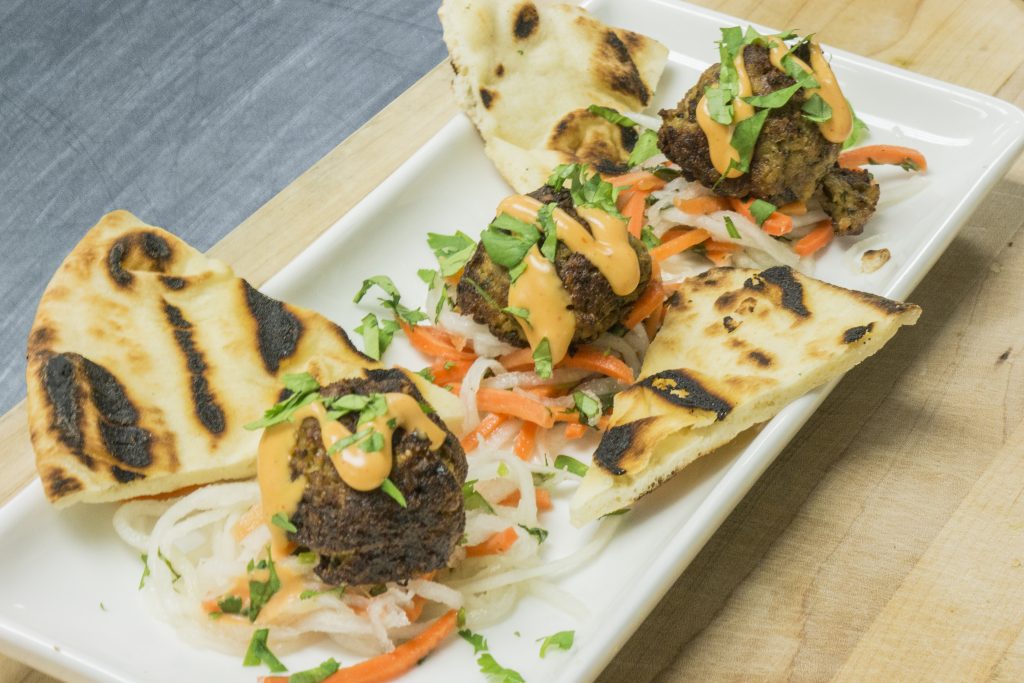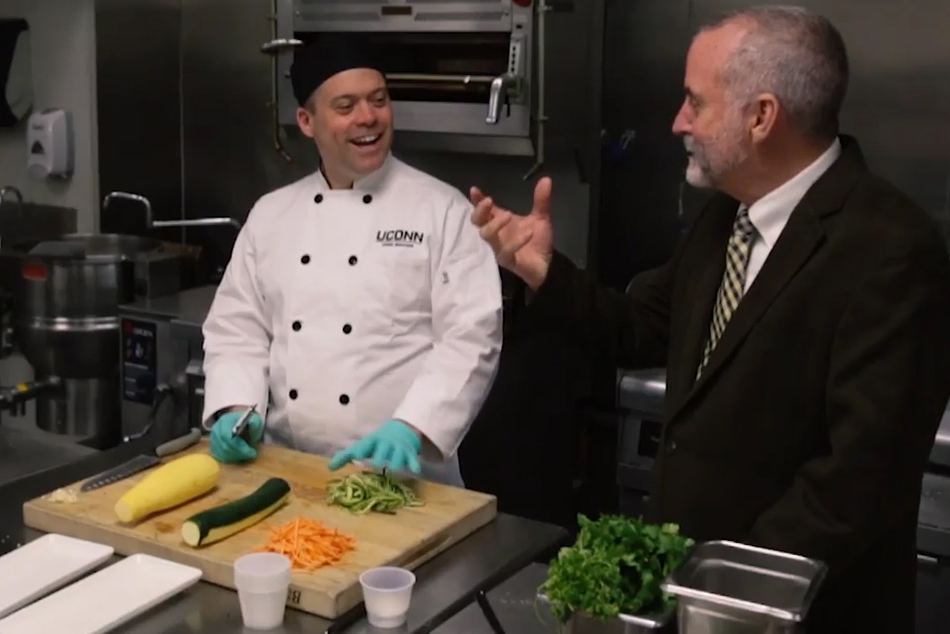The director of UConn’s highly lauded Department of Dining Services has been named best among his peers at the nation’s colleges and universities, an honor he attributes to the effort of all the UConn dining employees who together serve more than 185,000 student meals per week.
C. Dennis Pierce is one of nine people nationwide to receive a 2018 Silver Plate Award from the International Foodservice Manufacturers Association (IFMA), the top awards for food service in the U.S. He was the top choice in the colleges and universities category, and was honored this month in Chicago along with recipients representing food service management in commercial venues, hospitality settings, and other segments of the industry.
Watch a video profile of Dennis Pierce and UConn’s Dining Services here.
Pierce, who has more than 40 years of experience in the food service industry, also two years ago won the highest individual honor of the National Association of College & University Food Service (NACUFS), the Theodore W. Minah Distinguished Service Award.
As he did when he won the NACUFS award, Pierce attributed the new IFMA honor to the work of the UConn Dining Services team, who run eight dining halls at Storrs, along with cafés and various other food venues throughout the University.
“I have never interpreted this award as one that is won by one individual. No man or woman accomplishes their goals without the support of others,” says Pierce, who has led the department since 2006. “Winning the Silver Plate means that our organization and exemplary dining service is being recognized by the food service industry … From the front-line server to our chefs and management team, their efforts have now come to fruition.”
Pierce says he especially enjoys his work because college and university food service is an incubator for new ideas, and that it is rewarding to play a role in helping students discover flavorful, healthy new foods, along with providing the standards they know and love.
“College and university food service feed thousands of repeat customers multiple times every day. We have learned that we are only as good as our last meal served,” he says.
Those meals have also been honored, in addition to those who prepare them.

This year, UConn Dining Services won a Gold Award for “Best Vegan Recipe” in the NACUFS Loyal A. Horton Dining Awards for 2018. The award will be presented at the group’s annual awards luncheon in July in Providence, Rhode Island.
The honor recognizes the department’s recipe, “Deconstructed Meatball Banh Mi with Sriracha Mayo Drizzle.” It was submitted by Robert Landolphi, UConn’s assistant dining director for culinary development.
The dish, which is very popular when served in Whitney Hall and other UConn dining halls, uses tempeh and a variety of vegetables, chopped and blended in a food processor, to create the faux meatballs, which then are topped with the Sriracha-mayonnaise drizzle and served with a slaw of carrots and daikon radish.
“I appreciate all of Whitney’s vegan options, but I think the meatball banh mi is my favorite – thanks!” wrote one student on a comment card submitted to the dining hall recently.
Others also described it in comment cards as “awesome,” “so tasty and packed with flavor,” and “my favorite dish – these chefs rock!”
“Serve the meatball banh mi at every meal!” another student wrote. “I had it at your dining hall for dinner and it was a great dish – packed with flavor, and from taste to texture, I loved every bit and definitely devoured more than my fair share!”
UConn Dining Services told NACUFS on its award submission that many of the ingredients in the recipe come directly from the University’s Spring Valley Student Farm, and that they formulated the meatball to have “great texture, big umami flavors, and nutty after-tones.”
“We thank all our students who have driven us in this direction to be able to prepare delicious, healthy vegan cuisine on a daily basis,” the department wrote. “If it wasn’t for our students, our talented staff, and a university that supports our efforts to move forward, we never would be where we are today.”



